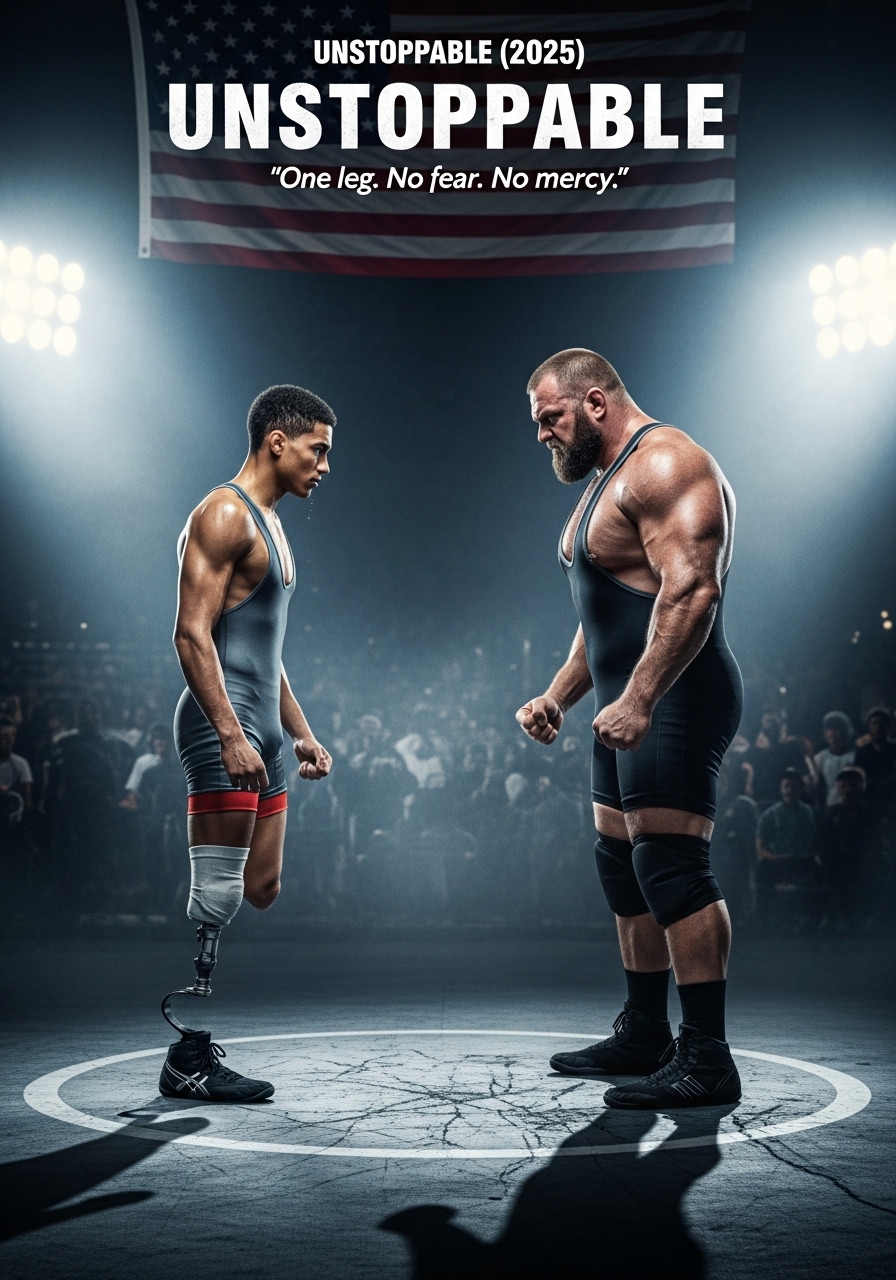UNSTOPPABLE (2025)

Unstoppable is more than a sports film — it’s a soul-stirring testament to the power of will, perseverance, and identity. Directed by William Goldenberg in his directorial debut, the film tells the extraordinary true story of Anthony Robles, a young man born with one leg who refused to be defined by it. Through a narrative that pulses with grit and grace, Unstoppable delivers one of the year’s most emotionally powerful cinematic journeys.
Jharrel Jerome (When They See Us) steps into the role of Anthony with unwavering commitment. His performance is electric — balancing vulnerability, fury, doubt, and unshakable drive in a character who must fight not only physical battles on the wrestling mat, but internal and societal ones off of it. Jerome doesn’t just mimic Robles’ movements — he embodies his heart. Each training montage, each moment of quiet reflection, each triumph feels earned and deeply personal.

Jennifer Lopez brings maternal fire and emotional grounding as Judy Robles, Anthony’s fierce and selfless mother. Her portrayal avoids clichés and taps into real emotional weight — a portrait of a woman who sacrifices everything to lift her son toward his destiny. Their relationship is the emotional core of the film, offering scenes of tenderness and tension that rise above traditional sports drama dynamics.
Goldenberg, an Oscar-winning editor (for Argo), makes a confident and affecting directorial debut. His experience behind the cutting room shines in how tightly the film is structured — lean, purposeful, and unafraid to linger when it matters most. The wrestling scenes are visceral and intense, captured not for spectacle but for their psychological tension. Every takedown and reversal becomes symbolic: of defiance, of endurance, of rewriting one’s story in real time.

The script (co-written by Kevin McDonald) wisely focuses on more than just Anthony’s rise through the sport. It explores the isolation of being different, the pressure of expectation, and the complicated duality of being inspirational while just trying to be normal. It never preaches or panders. Instead, it honors Anthony’s journey without sanding down its pain.
The film’s climax — Anthony’s national championship run — is as exhilarating as it is emotional. Not because we don’t know how it ends, but because we’ve come to understand what it means. The roar of the crowd is secondary to the weight of every step it took to get there. And when that moment comes, it lands not as fantasy, but as a thunderous confirmation that some victories transcend the scoreboard.
Unstoppable ultimately earns its title. It is a celebration of body and spirit, of quiet resistance and loud triumph. It’s about believing in yourself when the world refuses to. And it’s about redefining strength — not by what you have, but by what you choose to do with what you have.
This is not just the story of a wrestler. It’s the story of a champion.